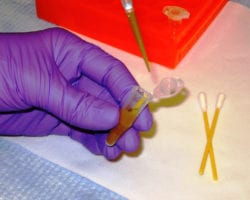Understanding Children’s Health Tests: A Guide for Parents
As a parent, ensuring the health and well-being of your child is a top priority. One essential aspect of this is understanding the various health tests available for children. These tests are crucial in monitoring growth, detecting potential health issues early, and ensuring your child is developing properly. This guide will help you navigate the world of children’s health tests with ease.
Why Are Health Tests Important for Children?
Health tests for children serve several vital purposes:
Early Detection: Identifying health issues early can lead to more effective treatments.
Monitoring Growth: Regular tests help track your child’s growth and development.
Preventative Care: Health tests can prevent potential problems by catching early signs of illness or developmental delays.
Common Types of Health Tests for Children
Newborn Screening Tests
Newborn screening tests are performed shortly after birth to detect certain genetic, endocrinologic, and metabolic disorders. These tests are crucial as they can identify conditions that may not be immediately apparent but can cause serious health issues if left untreated.
Developmental and Behavioral Screenings
These screenings assess whether a child is meeting developmental milestones in areas such as speech, movement, and social skills. Pediatricians typically conduct these screenings during regular check-ups.
Vision and Hearing Tests
Routine vision and hearing tests are essential for early detection of issues that can affect learning and development. These tests are usually conducted at various stages of a child’s growth.
Blood Tests
Blood tests can provide valuable information about your child’s overall health. Common blood tests include checks for anemia, lead poisoning, cholesterol levels, and glucose levels.
Allergy Tests
If your child shows signs of allergies, such as persistent sneezing, coughing, or skin rashes, allergy tests can help identify specific allergens. These tests can be done through skin tests or blood tests.
When Should Children Get Health Tests?
The schedule for children’s health tests can vary based on age, health history, and risk factors. Here’s a general guideline:
Newborn: Screening tests within the first few days of life.
Infants and Toddlers: Regular check-ups every few months to monitor growth and development.
Preschool and School-Age: Annual check-ups that include vision and hearing tests, as well as developmental screenings.
Adolescents: Annual physical exams that may include blood tests and screenings for conditions like scoliosis or cholesterol levels.
Complete Blood Count (CBC): Essential for detecting infections, anemia, and other blood disorders.
Allergy Testing: Identifies specific allergens that may be causing your child’s symptoms.
Nutritional Deficiency Tests: Measures levels of essential vitamins and minerals to ensure your child is getting adequate nutrition.
Hormone Level Tests: Assesses growth and thyroid hormones to monitor development.
Diabetes Screening: Detects early signs of diabetes or monitors existing conditions.
How to Prepare Your Child for Health Tests
Preparing your child for health tests can help reduce anxiety and make the experience smoother:
Explain the Process: Describe what will happen during the test in simple terms your child can understand.
Stay Calm and Positive: Your calm demeanor can help reassure your child.
Bring Comfort Items: A favorite toy or blanket can provide comfort during the test.
Use Distractions: Books, videos, or games can distract your child during waiting times or procedures.
Conclusion
Children’s health tests are a fundamental part of ensuring your child’s well-being. By understanding the types of tests available and the importance of regular screenings, you can take proactive steps in safeguarding your child’s health. Always consult with your pediatrician to determine the appropriate tests for your child’s specific needs and circumstances.
Remember, early detection and intervention can make a significant difference in your child’s health outcomes. Stay informed, stay proactive, and keep your child on the path to a healthy future






